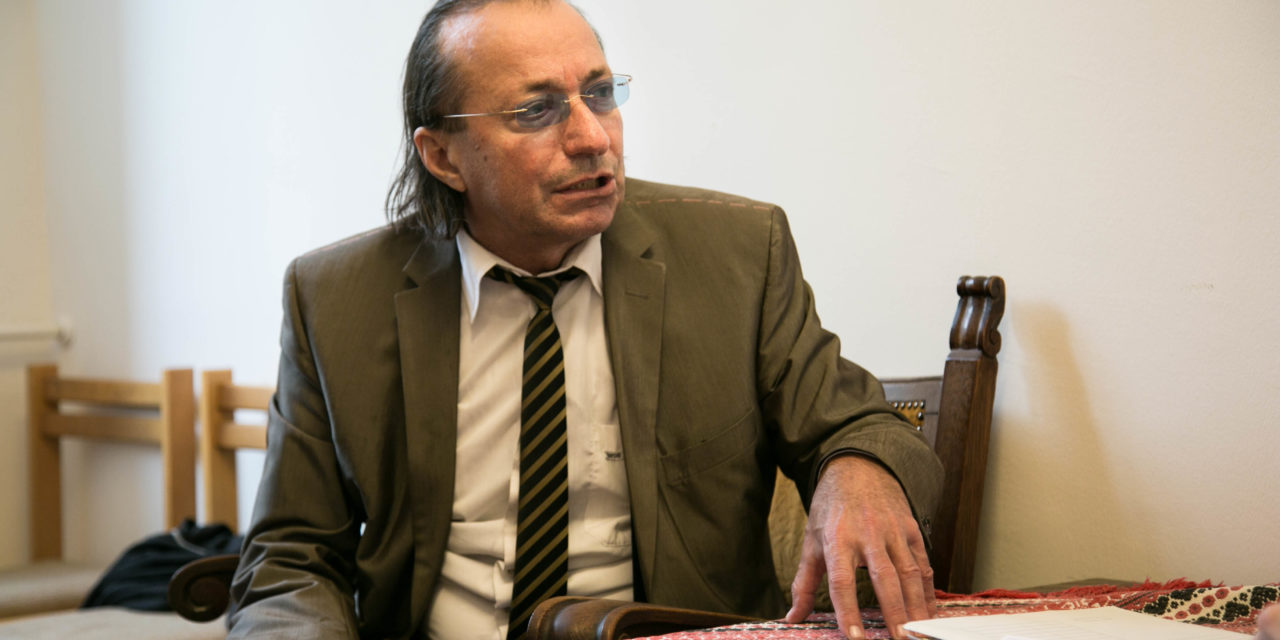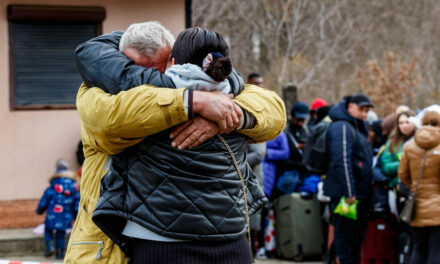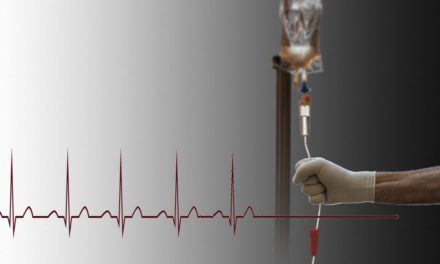What was the main reason that the number of Hungarians not only doubled, but is now in danger of maintaining the number of ten million in 1913 in the Carpathian Basin? Lack of perspective.
One hundred and ten years ago, Endre Ady wrote the sentence that has accompanied my journey since 1977: "After all, when we were in Etelköz, and we were hunting for prey, how many times did we come home to find that we had no wife, no tent, no children, and lo and behold, we were still alive. " It would be hard for me to explain what it was that captured me so much in these words, but it must have been something that I felt our destiny pulsating in them. The migration, hunting for prey, trials, destruction, and - through the conquest - survival.
"We are still alive," says Ady in 1913, when, after many troubles, the Hungarians finally reached the majority in their own country.
There were roughly ten million of us then (54 percent), and almost as many compatriots with a different mother tongue or nationality (46 percent). Just one example: almost two million people claimed to be Slovak. The population of today's Slovakia is 5.5 million. Half a million of them are Hungarians. Even then, the Slovak population grew from two million to five million. Meanwhile - since 1913 - a lot has happened, two world wars, "population exchange", deportation, communist dictatorship.
If all of this does not exist, but instead a peaceful, democratic evolution takes place, the number of Hungarians should have at least doubled, i.e. roughly twenty million Hungarians would live in the Carpathian Basin.
If I take into account natural assimilation, it is much more. In this way, we would not be so far from the dream of Ady's great opponent, Jenók Rákosi, of the empire of "thirty million Hungarians". The two million Hungarian citizens of German origin at the time - like Rákosi himself - could also be added to the twenty million, and thus the desired number could really seem close. And if there is evolution and if there is peace, the Hungarian state would certainly have realized by then that autonomies were necessary and correct, even rewarding. There would have been Ruthenian autonomy, Slovak as well, of course not with the center in Bratislava, but with, say, Túrócszentmárton or Zsolna as the "capital". They would have renovated the Saxons in Transylvania. Romanian and Serbian autonomy would have been more difficult, I believe that they would not have been created. Yet, in this way, the Kingdom of Hungary (with Croatia as a partner state) could have been a state blessed with European-level citizenship, economy and culture. Including its political system. Why did nothing come of this?
There was a reason for that. If it had to be expressed in one word: war. If still together: party feud.
(By this I mean not only the endless political debates, but also the unrest of the nation divided into parties on a thousand and one issues.) If there is one more: political blindness. Missing everything, coming from afar. The fear in our genes, that when we return home - we take a big step with age - we have neither wife, nor tent, nor children. And maybe we won't be ourselves anymore. The elementary experience here "inside", in the Carpathian Basin, Hungary and Transylvania, about the danger that is always lurking on us from all sides and from within. Uncertain citizenship. And the last word: the interest and incomprehension of the great and other powers hanging around here. Hungarian? Hungary? Which then also sealed the fate of the Austro-Hungarian Monarchy.
Why such a state? Why such a small and completely incomprehensible language? To a museum, reserve, open-air museum! With English subtitle. They would suffocate each other in the one puddle we left for them. Symbolic. (Not Grand Lodge.) Sometimes they have dignity. Exotic fairytale world. They stick to their strange habits.
Their incomprehensible mission: existence. That's why we are examined with disbelief, regret or mockery even today by eyes accustomed to perspective.
Endre Ady and Jenő Rákosi? The swelling hatred between them poisons the Hungarian air even today. They both wrote a lot of clever things and a lot of nonsense. Let's take something smart from Jenő Rákosi:
"The fiercest war is being prepared: the war of economic interests. That this war will be more murderous and destructive than any old war, there is little doubt. The Pan-Europe to which the terrified peoples want to flee is a big lake with small fish and big fish. And it's not the small fish that will eat the big fish. This economic war, towards which the world is heading, will be a modern form of migration, and it will destroy Europe just as it was destroyed by barbaric migration."
This was written by Jenő Rákosi in 1926, when Ady had already been dead for seven years. Even Ady's angry mistakes are great, even though he also described that "socialism is divine, even the most human religion", and added that it contains "Jehovah's revenge and the impartial, generous love of Jesus' god." Three years before the Great War, he wrote such things, as well as his famous poem, which called the proletarians as Gods to fight, rejoice and fight. Are the "wild lord Tatars" an exaggeration? Is "beauty and hope" an exaggeration? Is the chain, the hunger, an exaggeration, the hunger of the word? A multitude of poor little Neros? It can be. You can't just tear out the good intentions of the poet from his heart. Apply everything that the twentieth century brought after it. Because he also wrote: "A nation can be governed well, it can be governed badly, but if this nation is worth something, it cannot be killed." And that's the point. How much are we worth? Are we worth anything at all? Partisanship sometimes starts our beliefs here. Ady's and Rákosi's too. And how many of these pairs were there before and have been born since then!?
And how many wanted to make a living from it? And how many want it today? How tiring this is. If simple, hard-working, clean people knew how many people live - and how many are outrageously rich - from nothing, they would surely be angry.
But the parasites would overcome their legitimate indignation. And they would spoil everything. They spoiled Ady's fearful anger and hope: "You are: today, you are: tomorrow." But it was really messed up by the parasites. The eternal Bélák Kun. But the evolutionary path is also broken. Because we could not prevent the war. And mostly the defeat, the undeserved defeat. Jenő Rákosi made Europe afraid of the new migration, but Ady also had an opinion about it. He says with a sneer: "And if the foreigner can benefit more from wealth and capital, then instead of emigrating compatriots and compatriots, a team of more useful foreigners should come." Ady has a word called "people exchange". from 1908. What Jenő Rákosi sees as Pan-Europe, which helps to eat up the small fish (small nations), Ady suddenly sees that "with the huge pickaxe of work, it is already strongly unraveling the pillars that demarcate countries."
The nation remains, the border melts away. A familiar thought. Too bad that's not quite what happens.
Because what was the main reason that the number of Hungarians not only doubled, but that it is now in danger of maintaining the 1913 number of ten million in the Carpathian Basin? Lack of perspective. The agonizing concealment of the horizon of the infinite. This was caused by Trianon (i.e. the war), and now this is what is being taken away from all of Europe by some inexplicable collapse of the human spirit, freedom, and soul. The greed of the big fish has brought about a degree of "population change" that threatens even the nations with a large population. Gluttonous sharks have no national affiliation. Population turnover means not only immigration, but also the stunting of the native population. There was only one instance of this in Europe. At the fall of the Pax Romana.
Roman civilization collapsed under internal and external pressures. It lived on in its elements, but it failed in social, political, philosophical, administrative and even religious terms. It took many centuries for the protagonists of the new era, the nations, the churches, the new legal system to develop, and then the modern world based on freedoms. It is hard to imagine what the consequences of the current internal disintegration and external pressure could be. Jenő Rákosi's statue has already been taken down, is Ady's next? What kind of idol is being made?
We arrived here carrying the nation on our shoulders. Then the state came up. We sprang for prey, but then came those who saw us as prey. Our tents, our cities, our women, our children, but they often resented our weakness! All the troubles of Europe weighed on our shoulders. We lost weight, were beaten and cut, but lo and behold, we are still alive!
The author is a historian
Hungarian Newspaper
Featured image: Viktor Krĉ













